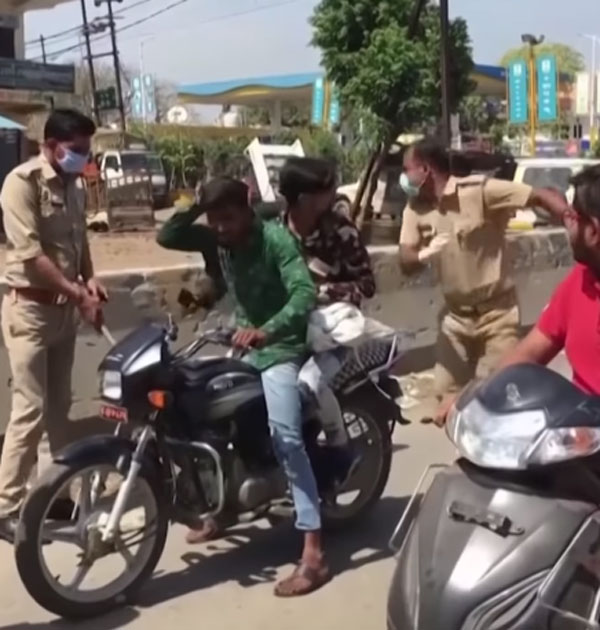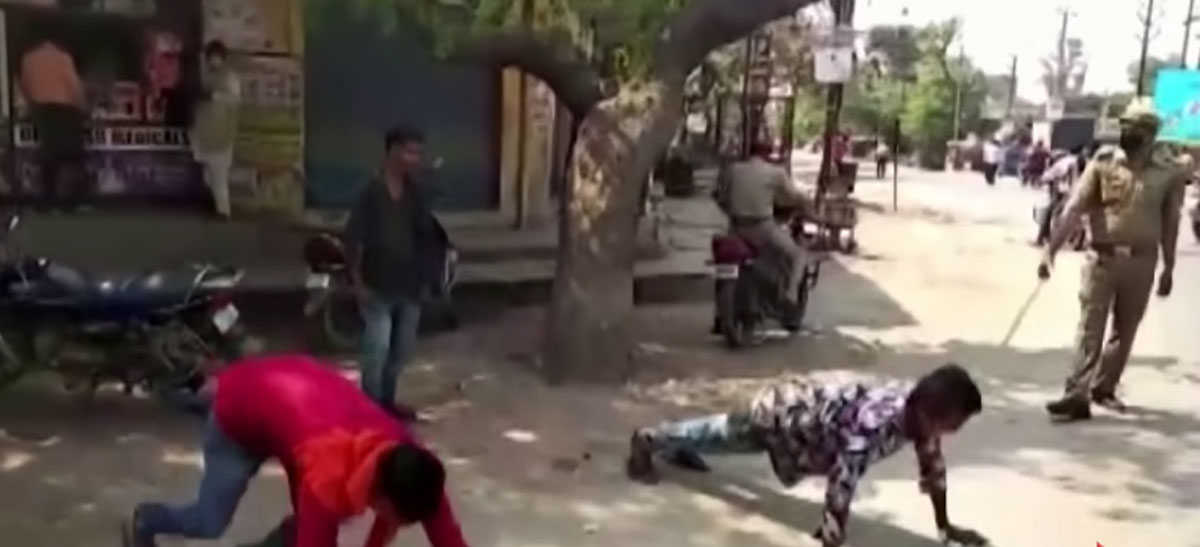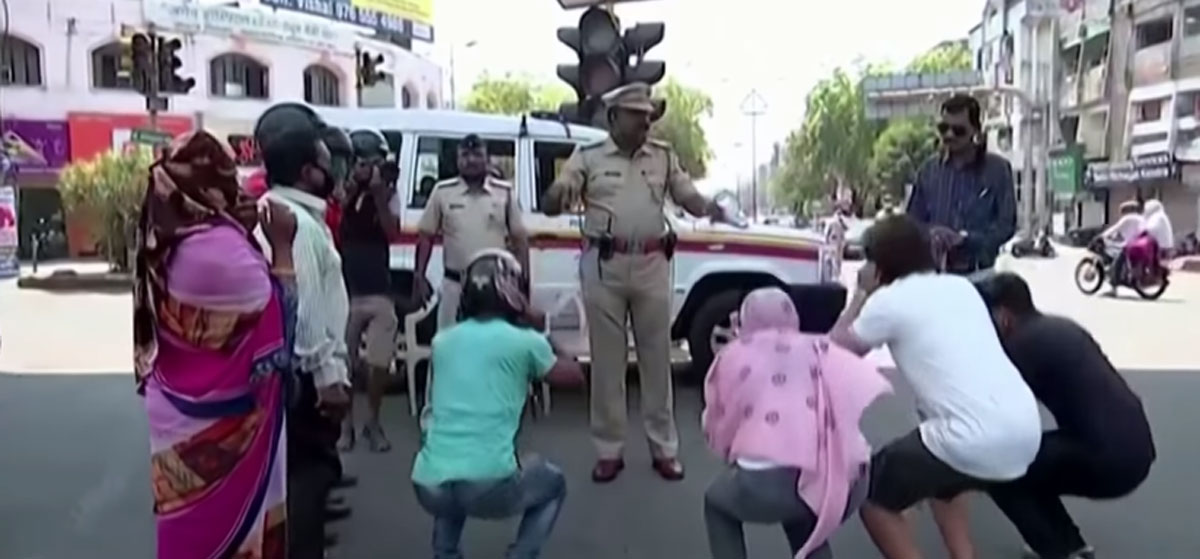India has gone under the world's biggest lockdown since Wednesday, March 25.
The 1.3 billion people in the world's largest democracy have been ordered to stay home in a bid to stop the coronavirus from overwhelming the country's fragile healthcare system.
Police have taken to using rattan canes to beat people up in New Delhi for not complying with lockdown measures, such as staying at home and getting off the usual bustling streets that have now become deserted.
Besides using objects, people out and about have also been smacked with open palms in broad daylight:

Other creative punishments include making the pedestrians do push-ups:

Some were made to pull their ears and do squats out in public:

Scope of India's lockdown surpasses China's
India's lockdown exceeds the scope of China's.
An estimated 760 million people in China were locked down in January.
Restrictions there are now being eased.
India has so far reported a relatively small number of cases, about 500, compared to European nations that have reported tens of thousands of infections.
Fears persist in India as the generally cramped living conditions, poverty, poor hygiene and a fragile healthcare system could quickly cause it to run out of control.
500 million Indians could be infected with Covid-19
Experts warn that up to 500 million Indians could be infected by Covid-19 within the next year.
This translates to more than 1 million deaths in the next 12 months.
Announcing the lockdown on Tuesday, Prime Minister Narendra Modi said that only essential services such as water, electricity, health services, fire services, groceries and municipal services will be allowed to operate.
All shops, commercial establishments, factories, workshops, offices, markets and places of worship will be closed and interstate buses and metros will be suspended.
Construction activity will also be halted.
The lockdown means that roughly a third of the world's population, or 2.6 billion people, are now living under some kind of restriction imposed because of coronavirus, half of them in India.
The economic standstill is a particularly acute problem in developing nations where large numbers of people live hand-to-mouth.
If you like what you read, follow us on Facebook, Instagram, Twitter and Telegram to get the latest updates.
